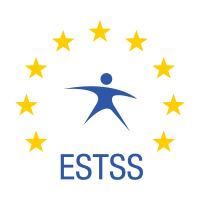
Webinar III and Webinar IV: Transitioning to e-health. Possibilities, barriers and experiences
Datum/Tid
02 dec 2020 - 09 dec 2020
Länk till evenemanget
Till webinar-kalender
Detta webinarium är en del i webinarie-serien Trauma-informed Responses to Covid-19: A New ESTSS Webinar Series on Meeting the Psychosocial Challenges of the Pandemic som European Society for Traumatic Stress Studies (ESTSS) anordnar varje onsdag mellan 18 november och 16 december 2020. Läs mera här: webinar-program
The changing conditions to provide psychological treatment surrounding the covid-19 pandemic has made clinicians rapidly transition to different e-health solutions. The use of e-health intervention may remain an important tool for a long time to come for patients to access mental health while keeping oneself, the clinician and one’s community safe and maintain physical distancing. For many clinicians the swift change has been hard and has brought along challenges. In addition, clinicians may be governed by certain myths surrounding the provision of e-health. In these webinar series, ESTSS want to support its members to use e-health in daily practice.
Aims of the webinar
To inspire, motivate and support ESTSS-members to effectively use e-health in their daily practice. To provide an overview of the evidence-base for different e-health options (internet-based interventions, tele-health solutions and the use of apps) and give practical examples of how and for who these interventions may work.
Topics
The webinars will revolve around the use of e-health from different angles.
- The evidence-base for e-health interventions
- The role of e-health interventions during and after the covid-19 pandemic
- Myths regarding e-health and how to challenge those
- Lessons learned from Australia in the development and evaluation of a nation-wide digital mental health services
- Logistics for delivering trauma-informed, evidence-based mental health services via e-health
- Concrete examples of trauma-focused interventions provided in a e-health format
Learning outcomes
Participants will acquire knowledge about different types of e-health interventions, its evidence-base and how to overcome barriers in its use.
Target audience
public health specialists, psychologists, psychotherapists, social workers, managers, policy makers.
Webinar III: Is the COVID-19 pandemic a ’black swan’ for internet interventions?
2nd of December 5 p.m – 6:30 p.m
Speaker
Professor Gerhard Andersson, Ph.D. is full professor of Clinical Psychology at Linköping University (appointed 2003), Sweden, in the Department of Behavioural Sciences and Learning. He also has a position as affi liated researcher at Karolinska Institutet in the Department of Clinical Neuroscience, Psychiatry, where he is linked to the Centre for Psychiatry Research (Competence Centre for Psychotherapy Research). Professor Andersson has published over 690 research papers, 50 chapters and 20 books. His present h-index is 90 (Scopus; Web of science 82). In 2016, 2017, 2018 and 2019 Andersson was on the list of highly cited researchers.
Webinar IV: Lessons Learned Delivering Digital Mental Health: An Australian Example
9th of December 9 a.m – 10:15 a.m
Speaker
Professor Nick Titov is committed to developing and delivering high quality psychological treatments. Nick is Co-Director of the eCentreClinic, a research unit that develops and evaluates digital mental health services. Nick has co-developed more than 15 online psychological interventions. These have been evaluated in more than 80 clinical trials of internet-delivered treatments involving more than 9,000 people across four countries. He has published more than 175 peer reviewed articles and has received more than $65M in project and research funding.
Nick is also Executive Director of MindSpot, at MQ Health, Macquarie University Australia. MindSpot operates two digital mental health clinics, the MindSpot Clinic and PORTS which serve 25,000 Australians per year. Nick also provides advice and support for organizations developing and delivering digital mental health services in Australia as well as in other countries.